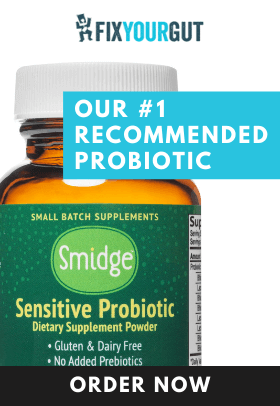Everyone wants their vitamin C supplement to be as natural as possible and include bioflavonoids!
Bioflavonoids…
Bioflavonoids…
Kind of rolls off the tongue.
Nevertheless, what are bioflavonoids? Does it matter when it comes to the ingestion of synthetic to food sourced vitamin C for better health? Are synthetic L-ascorbic acid supplements that include bioflavonoids better then supplementing with standard L-ascorbic acid?
Is the action of synthetic L-ascorbic acid the same as food sourced vitamin C when you factor in natural bioflavinoids? Mostly.
Bioflavonoids
Bioflavonoids are secondary metabolites that plants produce. Secondary metabolites are organic compounds that can improve an organism’s health but are not needed for development or survival. Bioflavonoids that plants produce are not needed for their survival and were once considered waste products like other secondary metabolites. 1
Secondary metabolites produced by plants can be beneficial or toxic to those who consume them. Nightshade alkaloids can be an example of secondary plant metabolites that can be harmful to humans depending on the type and quantity consumed. Tomatine (nightshade alkaloid) produced by tomatoes is not nearly as harmful as nicotine (another nightshade alkaloid) primarily produced by tobacco. 2 3 4
There are many different bioflavonoids in citrus fruits (natural food sources of the vitamin). They include:
- Hesperidin – may help with venous issues and hemorrhoids. 5
- Quercetin – may have anti-inflammatory properties and may help people suffering from allergies and asthma. 6
- Rutin – may have anti-inflammatory properties, may help with venous issues, prevent blood clots, and inhibit aldose reductase. 7
Do Bioflavonoids Help Increase Absorption?
Most studies show they do not. Nevertheless, why do bioflavonoids not help with vitamin C absorption? Because synthetic L-ascorbic acid is already easily absorbed by the body. 8 9
Many studies show that there is no change between vitamin C plasma levels of standard ascorbic acid is consumed or if it was consumed with bioflavonoids. Most studies done with food sourced vitamin C and bioflavonoids including kiwifruit, blackcurrant juice, orange juice, and showed no difference in urinary excretion of food sourced vitamin C compared to L-ascorbic acid. 10 11
One very small study, however, showed less food sourced vitamin C urinary excretion when subjects were given acerola cherry juice (rich in ascorbate) over synthetic L-ascorbic acid.The study was done with a very small sample size (six young Japanese males.) 12
Though bioflavonoids do not help the absorption or bioavailability of vitamin C, it does not mean that they do not improve our health in other ways like the above list. If you want to take an L-ascorbic acid supplement with bioflavonoids for the health benefit of those flavonoids, I see no issue with doing this; however, most supplements will not include enough bioflavonoids to get any real benefit. It would be best to supplement with individual bioflavonoids depending on your health concerns than to take a L-ascorbic acid supplement with these bioflavonoids.
Finally, the impact flavonoids have on increasing the absorption of L-ascorbic acid seems to be negligible at best. I do believe there is a need for more controlled studies using specific flavonoid extracts to see if it would increase plasma vitamin C levels, but for now continue to take your synthetic L-ascorbic acid only supplements.
See more from this series:
- Is L-Ascorbic Acid the Same as Vitamin C? Part 1
- Is L-Ascorbic Acid the Same as Vitamin C? Part 2
- http://www.interactive-biology.com/3982/classification-of-secondary-metabolites-how-plants-and-humans-use-them-2/ ↩
- http://pubchem.ncbi.nlm.nih.gov/compound/Tomatine#section=Related-Substances ↩
- http://pubchem.ncbi.nlm.nih.gov/compound/Tomatine ↩
- www.ncbi.nlm.nih.gov/pccompound?term=nicotene ↩
- http://examine.com/supplements/Hesperidin/ ↩
- http://examine.com/supplements/Quercetin/ ↩
- http://www.raysahelian.com/rutin.html ↩
- http://lpi.oregonstate.edu/mic/vitamins/vitamin-C/supplemental-forms ↩
- http://www.ncbi.nlm.nih.gov/pmc/articles/PMC3847730/ ↩
- http://www.ncbi.nlm.nih.gov/pubmed/24067392 ↩
- http://lpi.oregonstate.edu/mic/vitamins/vitamin-C/supplemental-forms#reference7 ↩
- http://www.ncbi.nlm.nih.gov/pubmed/22040889 ↩







Thank you!
Well done! Thanks.
How much do you take per day?
I take about 3,000 – 4,000 mg total every other day in divided doses.